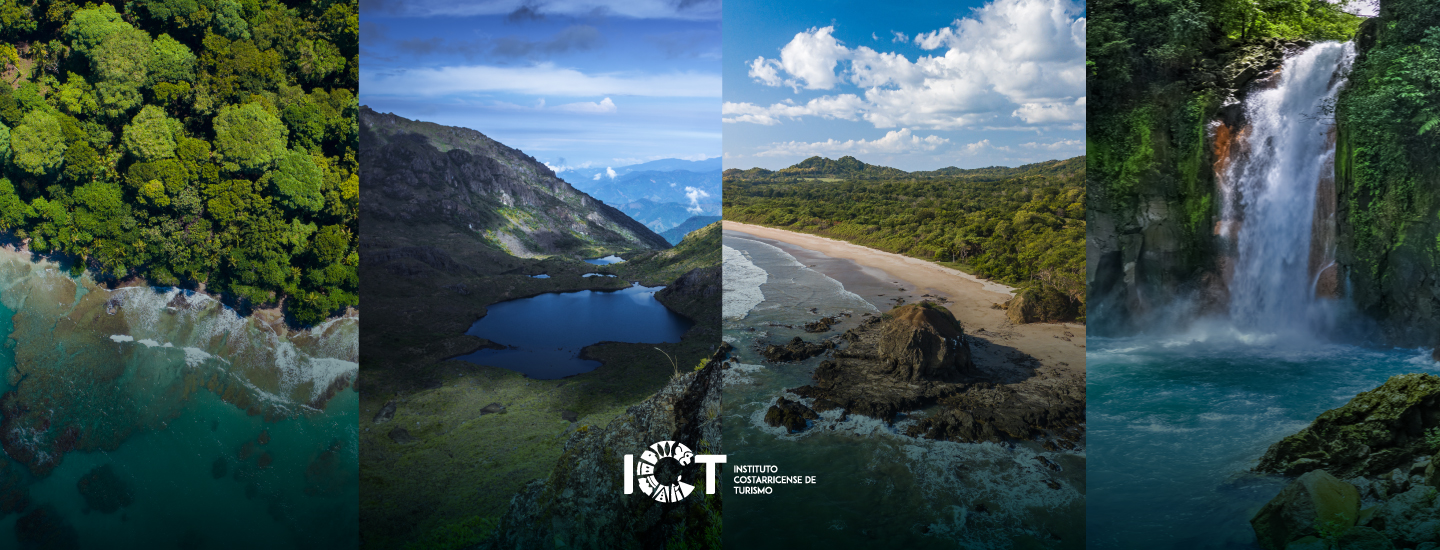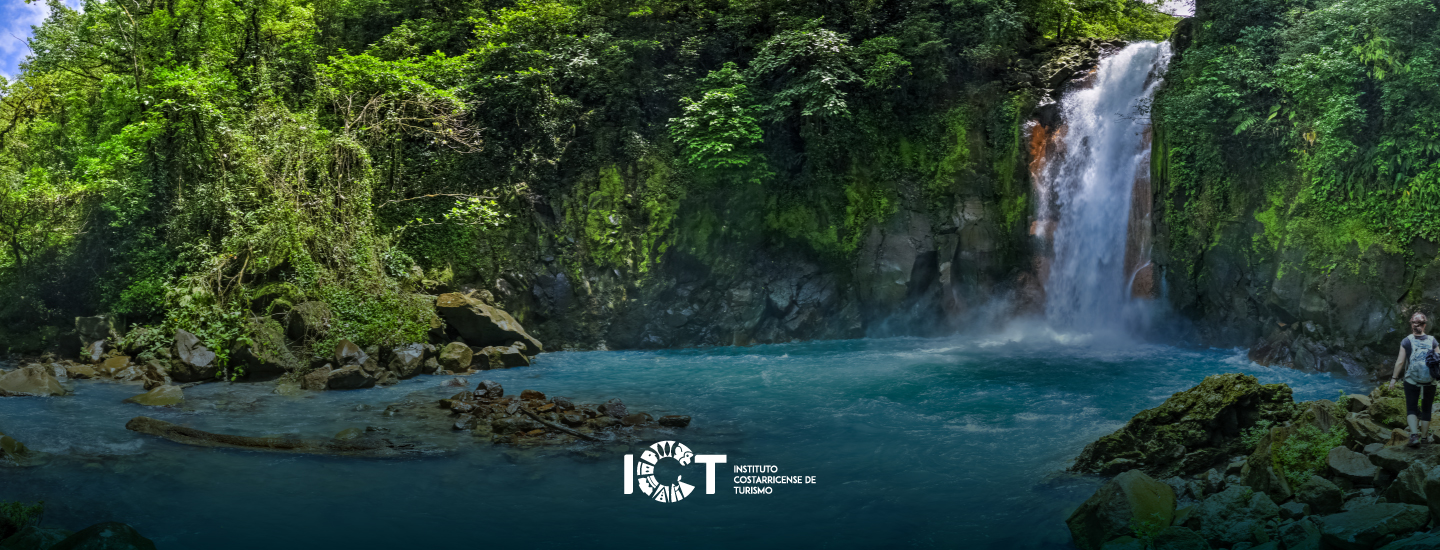Government announces 20 new measures to alleviate and reactivate the tourism sector
- The short-term provisions include a gradual opening to the Chinese market, new tourism infrastructure, support to SMEs and transportation companies, credits for rural areas and cost-reduction measures for restaurants and hotels.
- Domestic tourism will be boosted through accumulated time off and teleworking policies, as well as proposed legislation to make Father's Day an official holiday in 2021.
- The announcement complements the Roadmap for Recovery from the ICT and the private sector.
- President Alvarado stated that “the tourism sector has been more severely affected than any other part of our economy by the pandemic. In recognition of that reality, our government, with leadership from the ICT and other institutions, has adopted a group of measures to boost the reactivation of tourism.”
- According to Minister Segura, “The tourism sector needs the full support of all state institutions to start back up and continue in its role as the engine of the country’s economy.”
Wednesday, February 17, 2021 - Accompanied by President of the Republic Carlos Alvarado, Tourism Minister Gustavo J. Segura announced 20 new measures on Wednesday to reactivate and provide relief to the tourism sector. The measures include a gradual opening to Chinese nationals from Beijing and Shanghai beginning on March 1, an investment of ₡2.25 billion in tourism infrastructure in protected areas, and a boost to domestic tourism through accumulated time off policies in the public sector, which will provide one day off per week.
In addition, transportation operators who renew their permits in 2021 will be granted a 2-year extension and an increase in the maximum age of their vehicles.
The Treasury Department will simplify the processes for tourism companies who registered losses in 2020 to suspend partial payments of income tax.
Meanwhile, the National Financial Oversight Council (Conassif) issued an agreement that provides flexibility to banks to make long-term considerations when analyzing the payment capacity of tourism-sector debtors. It also extended the measures that allow modifications to the contractual conditions of loans to households and companies until December 31, 2021.
For SMEs in the tourism sector, obtaining a new or renewed operating permit will only cost $20, plus 20% of the cost of the health registration.
Hoteliers and restaurateurs in the Chorotega and Huetar Norte regions will benefit from two business roundtables with producers from the agriculture, livestock and fishery sectors to reduce intermediary costs.
These measures will complement the recovery plan for the tourism sector set out in the roadmap designed by the ICT and the private sector in 2020, as well as the reopening of air travel to all countries in November, new air routes, and marketing campaigns at home and abroad.
“The tourism sector has been more severely affected than any other part of our economy by the pandemic,” said President of the Republic Carlos Alvarado. “In recognition of that reality, our government, with leadership from the ICT and other institutions, has adopted a group of measures to boost the reactivation of tourism.” Alvarado highlighted the opening to Chinese tourism and the strengthening of the bilateral relationship with China over the past 13 years.
“In order for the tourism sector to get on its feet and continue to be the engine of the national economy, it needs the full support of all state institutions,” said the Minister of Tourism at a press conference at the ICT. “The President has supported our call and today we are providing short-term solutions that will help ease the pressure on tourism companies, allowing as many as possible to survive the impact of the pandemic and play their part in the recovery of tourism,” added the Minister.
The measures were proposed by the Ministries of Labor and Social Security, Public Safety, Foreign Affairs and Worship, Finance, Agriculture and Livestock, Health, Environment and Energy, Economy, Industry and Commerce, and Culture, as well as the Rural Development Institute, the Costa Rican Electricity Institute, the Municipal Advisory and Development Institute, INCOPESCA and Conassif.
Chinese Tourism
About 10% of China’s population travels internationally, amounting to around 140 million people. By 2027, the number of passport holders is expected to reach 300 million, equivalent to 20% of China’s population.
In order to explore this market, the ICT, the General Directorate of Immigration and Foreigners, the Ministry of Public Safety and the Ministry of Foreign Affairs and Worship agreed on the visa exception for the entry of tourists from Beijing and Shanghai, with a response within a maximum of 72 hours. The measure, which will come into force on March 1, is part of a gradual process that sets out entry requirements such as prior purchase of a package tour from a registered Costa Rican tour operator.
In 2019, the country accounted for 16,847 international arrivals at all ports of entry.
MINAE
The Ministry of Environment and Energy is planning a ₡1.4 billion investment in tourism infrastructure. Projects will begin in Marino Ballena National Park, Corcovado National Park, La Amistad International Park, Piedras Blancas National Park and Golfito National Wildlife Refuge in 2021 and are due to be completed within 12 months. These projects will be financed by JUDESUR.
There will also be a ₡850 million investment in the Tenorio Volcano National Park starting in the second half of 2021.
Domestic Tourism
Directive 077-S-MTSS-MIDEPLAN allows public employees to accumulate time off to book one day off per week. Employees will be encouraged to take Fridays or Mondays in order to stimulate local tourism.
Where possible, teleworking will be allowed from tourism facilities with the proper infrastructure. In addition, draft legislation has been proposed to make Father’s Day a national holiday.
Loans for Rural Areas
The Rural Development Institute (INDER) will provide comprehensive support for key economic activities, with priority to the tourism sector in the 29 rural territories of Costa Rica. Two programs will support this effort: Impulso Rural (Rural Boost) and Crédito en Marcha (Credit in Motion).
- Impulso Rural will aid female entrepreneurs in the tourism sector in rural areas who have been affected by the pandemic through competitive, non-reimbursable grants totaling ₡300 million, which will be distributed among 60 initiatives which will receive ₡5 million each.
- Crédito en Marcha will offer loans totaling ₡500 million to organizations, associations and cooperatives that need to purchase furnishings and equipment or fund minor construction projects, renovations or working capital.
Both options can be found at https://motorrural.inder.go.cr
Cost of Electricity
Through agreements with the Regulatory Authority of Public Services, the Costa Rican Electricity Institute (ICE) has suspended the minimum consumption requirements for clients to access medium voltage rates, previously set at 120,000 kWh. In addition, it is providing continuity through the MTb tariff even when monthly consumption does not reach the requirements.
Likewise, ICE allows the demand registered in a given month of the previous year to be adjusted in proportion to the energy and power requirements. This benefit must be requested by the client; it does not apply automatically.
Prior to the COVID-19 pandemic, tourism created 225,000 direct and 83,000 indirect jobs. The tourism sector accounted for 40.7% of the country’s drop in GDP in 2020, which fell by 4.5% overall, according to data from the Central Bank of Costa Rica.

